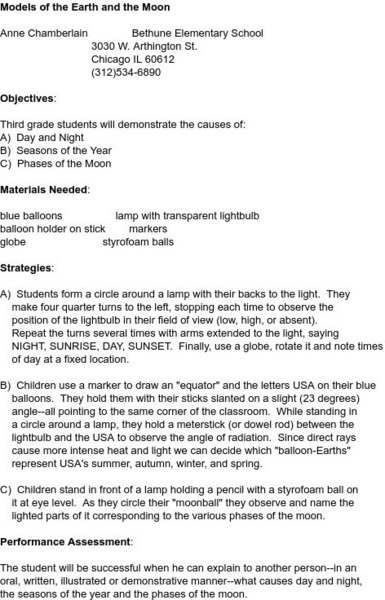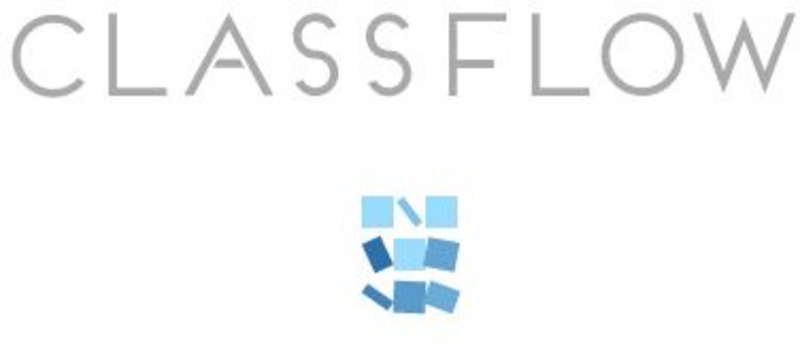Hi, what do you want to do?
Other
Center for Science Education: Eye on the Sky: What Makes Day and Night?
This activity will allow you to model day and night cycles. A rotating student holding a map (provided) models the earth. A lamp is used to model the sun. Numerous worksheets (pdf) and additional website resources are also provided.
Science and Mathematics Initiative for Learning Enhancement (SMILE)
Smile: Models of the Earth and Moon
This lesson plan from the Illinois Institute of Technology demonstrates the causes of; day and night, seasons, and phases of the moon.With a few items, you help the elementary student discover why these phenomena occur.
Read Works
Read Works: Setting Kindergarten Unit: When (Seasons, Day, or Night)
[Free Registration/Login Required] A lesson plan, based on Look! Snow! by Kathryn O. Galbraith, in which students learn how to utilize text and picture clues to determine basic time elements of setting in a story. Students follow this...
TeachEngineering
Teach Engineering: Zero Energy Housing
Students investigate passive solar building design with a focus solely on heating. They learn how insulation, window placement, thermal mass, surface colors, and site orientation play important roles in passive solar heating. They use...
Science Education Resource Center at Carleton College
Serc: Mn Step: Rotation of the Earth
A KWL activity combined with a demonstration model. Learners record their ideas and questions about why we have day and night. They then shine a flashlight (the Sun) on a rotating styrofoam ball (the Earth) and record their observations....
Climate Literacy
Clean: Zero Energy Housing
Learners investigate passive solar building design with a focus solely on heating. Then they design and build their own model houses, and test them for thermal gains and losses during a simulated day and night.
Writing Fix
Writing Fix: Shape "Monsters" at Night
Using Melanie Watt's book entitled Scaredy Squirrel at Night, this multi-day lesson allows students to apply information about Scaredy Squirrel's night time experiences and its fears as their final product model. Students will create...
Songs for Teaching
Sciences Songs All Day Long: Nocturnal Animals
By listening to this song your students will learn all of the animals that are awake during the night. They will equate the sounds they hear at night with the animals and their sounds in the song.
ClassFlow
Class Flow: Earth, Sun and Moon
[Free Registration/Login Required] In this unit children learn about the shapes and relative sizes of the Earth, Sun and Moon. Using models they learn how the three bodies move relative to each other and how these movements relate to...
ArtsNow
Arts Now Learning: Phases of the Moon [Pdf]
In this lesson, 4th graders use their bodies to model the day/night cycles of the Sun and Earth. Next, they discuss the moon's role in the solar system and explore the eight phases of the moon by acting out a story. Finally, a song...














![Arts Now Learning: Phases of the Moon [Pdf] Lesson Plan Arts Now Learning: Phases of the Moon [Pdf] Lesson Plan](https://static.lp.lexp.cloud/images/attachment_defaults/resource/large/FPO-knovation.png)